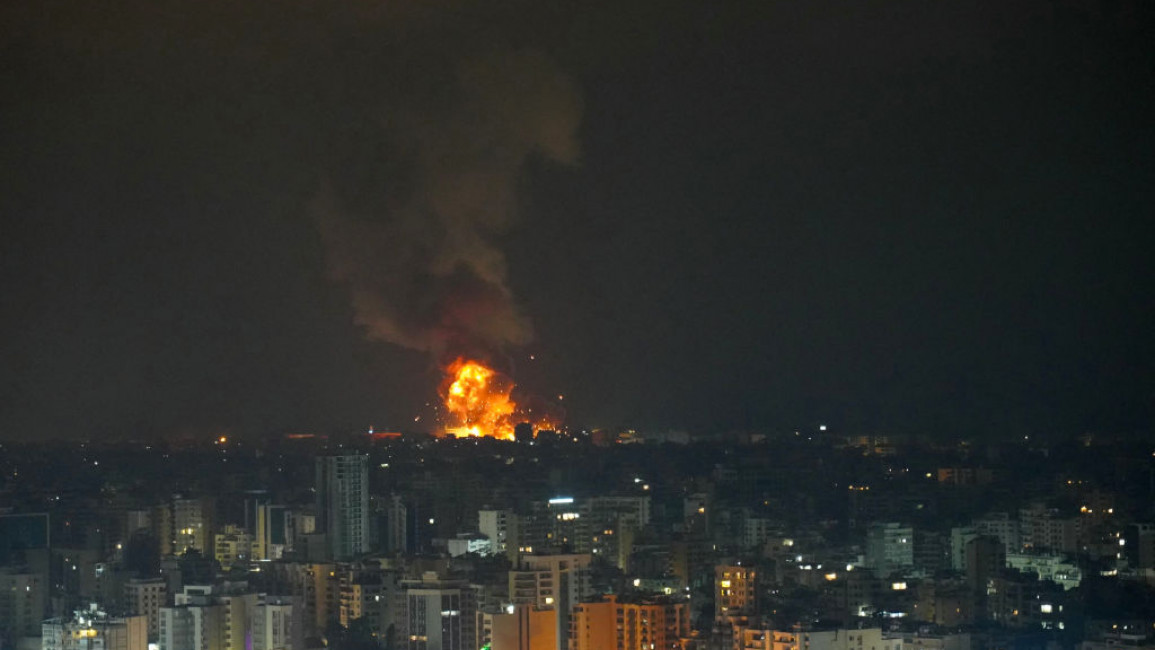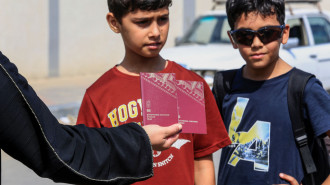Israel's bombardment of Lebanon brings death, destruction, and trauma
Israel's escalation of its bombardment of Lebanon since 23 September has destroyed infrastructure and increased civilian casualties, turning a low-level conflict into a full-scale war.
Airstrikes on residential areas which have caused mass civilian casualties are starting to be investigated, including by UK-based war monitor Airwars.
The group's director Emily Tripp told The New Arab that such incidents were strikingly similar to those it has previously investigated in Gaza.
"We already have a number of cases we're looking into, for example, of families dying together in single strikes."
Israel says it is striking Hezbollah, a group with an armed wing that has been firing rockets into northern Israel since 8 October in solidarity with Hamas in Gaza. But Israel's strikes don't just hit Hezbollah fighters.
"Just as with Gaza, actively working to protect civilians even in complex environments where militants might be embedded amongst populations in areas like Gaza or parts of Lebanon involves a number of practices and approaches that go far beyond anything Israel has demonstrated it is willing or able to do," she added.
According to Lebanon's health ministry 2,169 people have been killed since 8 October 2023, with a further 10,212 being wounded.
Tala Alaeddine, a researcher for the Lebanon-based Public Works Studio, told The New Arab that the increasing death toll is because of the dramatic rise in strikes.
For example, Alaeddine pointed out that in the week from the 9 to 15 September Israeli aircraft struck 60 towns across Lebanon. From the 25 to 29 September, that number was 224. Such strikes have increased the monitoring workload of the organisation.
The group also monitored the expansion of strikes into the governates of Bekaa and Baalbek-Hermel, as well as Beirut's southern suburbs.
"If you look at the monitoring, you can see that the type of targets now are a lot more residential buildings," she said, adding that "we also see [that] the targeting of civil defence, ambulances and centres that are related to relief [efforts] also increased after 23 September."
On 1 October Israel announced the beginning of a ground invasion into southern Lebanon. It has since committed four divisions, the 36th, 91st, 98th, and 146th to its attack.
Alaeddine said that with the announcement of the ground invasion, strike concentration shifted back south to support the invasion, although she noted that intense strikes are still ongoing across Lebanon.
Mona Fawaz, a Professor of Urban Studies and Planning at the American University of Beirut, told The New Arab that without a ceasefire it is impossible to evaluate how much damage has occurred and how long it will take for the country to recover.
"What we can tell you is what everyone is seeing on the news: it's severe, and many of the so-called 'targeted hits' are in reality much more extensive than a 'target'", she said.
"We know that the building fabric of many villages in South Lebanon and several areas of Beirut's suburbs, particularly Haret Hreik, Mreijeh, and Bourj are severely hit but we cannot say any more."
The group that Fawaz is part of, Beirut Urban Lab, has begun a pilot program, mapping the bombardment of Beirut and its suburbs.
"It will be a dynamic map to show that what is being destroyed is [not just] buildings but also a whole fabric of life."
Yazan al-Saadi, The New Arab's international editor based in Beirut, said that Israel's air campaign against the city is traumatizing its residents, with many experiencing a lack of sleep, increased anxiety, and anger.
"After the latest attacks in central Beirut in Ras al-Nabaa and al-Nuewiri, its clear to many that the Israelis aren't doing anything that's limited in scope or action; everyone seems to be a target regardless."
22 people were killed and 117 were wounded in the strikes on 10 October, which since 23 September have become a near nightly occurrence for the city and its southern suburbs.
Israel often issues warnings that there will be strikes in specific areas of Beirut through its social media channels, but al-Saadi said that many in Beirut view these as nefarious and inhumane, contributing to the trauma faced by residents.
"Now you're looking at a new type of Lebanon, and what this means is that nobody really knows because it all relates to how the war will happen or how it goes," he said.




 Follow the Middle East's top stories in English at The New Arab on Google News
Follow the Middle East's top stories in English at The New Arab on Google News
![People gathered around the rubble of destroyed houses to search for survivors [Getty]](/sites/default/files/styles/image_330x185/public/2024-11/GettyImages-2184733820.jpg?h=199d8c1f&itok=NiM1LO2f)

